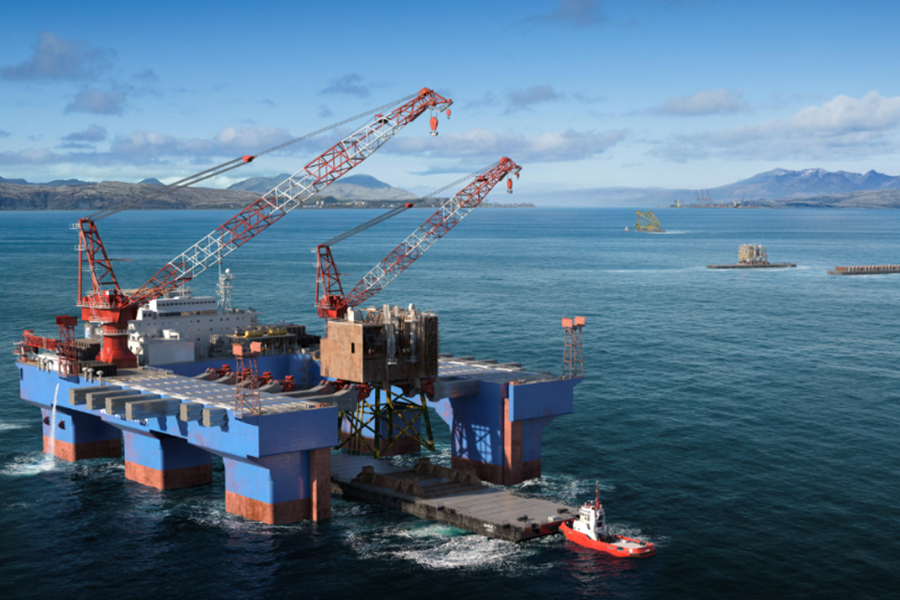The Virtual Ultra Deepwater Port (VUDWP) project entered the key decision making phase in late July and the first new project management team meeting took place late August.
The VUDWP is an innovative approach to solve the decommissioning problem associated with the absence of ultra-deep water ports in the UK by taking the port to the deep water, rather than building a deep water port. This idea, which was conceptually studied by Bureau Veritas in the first half of 2019, at the request of the Forth and Tay Alliance, was deemed to be technically viable, potentially very economically attractive and recommended for further study and definition.
This next phase of the project; the “Select Phase” in project management parlance, is the one where key decisions are made, looking at a wide range of options. These options will be evaluated against the project drivers and determinants of success.
The project team is manned by representatives from Bureau Veritas, Forth Ports, Offshore Decommissioning Services, and TEXO.
The project phase has defined some framing around which to make the decisions. These are that the virtual port will be designed around the ODS vessel Moonraker 1; the port will be located in the Firth of Forth, and the receiving port will be the Port of Dundee.

The VUDWP in Action
While these decisions are clearly focused on the facilities and participants of the Forth and Tay Decommissioning Alliance, the analysis and results will be capable of being applied at numerous UK ports, and suitable for export opportunities globally. Forth and Tay, as with the conceptual study phase, plan on sharing the outcome of the Select phase with the industry generally.
The virtual port concept has been used successfully in other industries and there is no reason why this should not work for decommissioning. For it to be successful, however, it must meet certain criteria including offering lower costs, being attractive to the industry in terms of safety, technical viability and operability. It is also felt it is important that the concept is supported and advocated by the regulators and UK Government.
The base case is a virtual port and not a transfer station, thereby avoiding double handling. Decommissioning and dismantling work will be executed on board the virtual port, thereby offering quayside flexibility, and overall schedule optimization.
The Select Phase is scheduled to be complete before the end of 2019, after which the project will enter the definition phase. An operational solution; permanent or a pilot, is planned to be in place before the end of 2020.
